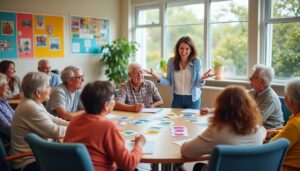“`html
Welcome to the beating heart of our digital platform.
Every interaction you have shapes your unique experience.
Let’s dive together into how we use your data.
We utilize cookies and data to provide and maintain our services, monitor interruptions, and ensure protection against spam, fraud, and abuse. This also allows us to measure our audience’s engagement and understand how our services are used to improve their quality. By choosing ‘Accept All,’ you allow us to develop and enhance new services, as well as to deliver targeted advertisements based on your preferences. If you prefer ‘Reject All,’ we will not use cookies for these additional purposes while providing you with non-personalized content based on your current activity and general location.

context of the senior economy in hong kong
In Hong Kong, the senior population is constantly increasing, reflecting a global trend where demographic aging becomes an unavoidable reality. This evolution poses both challenges and opportunities for the local economy. With a declining birth rate and an increasing life expectancy, Hong Kong must adapt its economic strategies to meet the growing needs of its aging population. The senior economy thus becomes a potential engine of growth, requiring innovative and targeted initiatives to maximize its impact.
The demographic situation in Hong Kong aligns with trends observed in other regions, notably in mainland China. For example, according to an article from The Silver Business, China is facing a similar decline in births, pushing the country to reinvent its approach towards the senior economy. In Hong Kong, this reflection leads to the implementation of specific policies aimed at proactively integrating seniors into the economic fabric.
what government initiatives are in place to support seniors?
The Hong Kong government has implemented several initiatives to energize the senior economy and improve their quality of life. Among these measures are financial support programs, tax incentives for businesses employing seniors, and investments in health infrastructure. These initiatives aim to encourage the active participation of seniors in the labor market and reduce dependence on traditional pension systems.
Simultaneously, efforts are underway to improve the health system dedicated to seniors. As highlighted by an article from The Silver Business, policymakers in Hong Kong are working to establish more accessible healthcare services tailored to the specific needs of elderly individuals. This includes the creation of specialized care centers and the enhancement of teleconsultation services, thereby facilitating access to healthcare for seniors.
the role of businesses in energizing the senior economy
Businesses play a crucial role in energizing the senior economy in Hong Kong. Many start-ups are emerging to meet the specific needs of this demographic, thereby creating new economic opportunities. For instance, companies like Next Age are innovating in areas such as health, wellness, and financial services, offering tailored solutions to improve the quality of life for seniors.
Furthermore, traditional businesses are reassessing their strategies to better integrate seniors into their business models. Initiatives such as mentoring programs, continuing education, and volunteering opportunities enable seniors to remain active and engaged in society. This approach contributes not only to the local economy but also to the social well-being of older individuals.
technology and innovation serving seniors
Technological innovation is at the heart of initiatives aimed at energizing the senior economy in Hong Kong. Emerging technologies, such as artificial intelligence, the Internet of Things (IoT), and digital platforms, are being used to create solutions tailored to the needs of seniors. For example, digital health applications allow for the monitoring of vital signs, medication management, and remote medical consultations.
Additionally, specialized start-ups, such as Quantasing, are developing low-cost online education platforms specifically targeting seniors. These educational tools allow older adults to continue learning and adapting to new technologies, thus enhancing their autonomy and active participation in the digital economy.
impact of initiatives on the quality of life for seniors
The initiatives undertaken by the government and businesses have a significant impact on the quality of life for seniors in Hong Kong. Improvements in healthcare services, easier access to technologies, and economic opportunities contribute to a more active and fulfilling life for the elderly. These measures also help reduce social isolation, thereby fostering better integration of seniors into the community.
Moreover, targeted tourism programs, such as those mentioned in The Silver Business, encourage seniors to actively participate in the tourism sector. By offering coupons and tailored packages, these initiatives not only stimulate the local economy but also provide seniors with enriching leisure opportunities.
challenges and future perspectives
Despite the progress made, several challenges persist in energizing the senior economy in Hong Kong. One of the main obstacles is the need to continuously adapt policies and services to demographic and technological changes. Furthermore, ensuring financial and social inclusion for seniors remains a priority that must be addressed to avoid any form of marginalization.
In the future, Hong Kong will need to continue innovating and collaborating with various stakeholders, including public and private sectors, to develop sustainable and inclusive solutions. Continuous learning and raising awareness about issues related to the senior economy will be essential to strengthen resilience and competitiveness of the local economy in the face of global demographic challenges.
In conclusion, current initiatives lay the groundwork for a dynamic and resilient senior economy in Hong Kong. By relying on innovation, collaboration, and the establishment of appropriate policies, the city can not only meet the needs of its aging population but also leverage this demographic shift to stimulate inclusive and sustainable economic growth.










